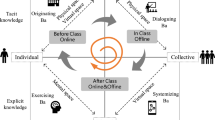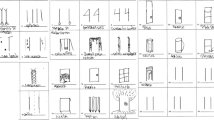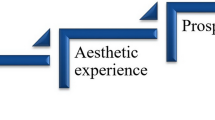Abstract
The concept that art and design education are indivisible is being eroded, and new concepts of industrial design are emerging. Professor Black argues for specialization in art and design education and for specialist design courses to be given in the schools of art.
This is a preview of subscription content, access via your institution
Access options
Subscribe to this journal
Receive 51 print issues and online access
$199.00 per year
only $3.90 per issue
Buy this article
- Purchase on Springer Link
- Instant access to full article PDF
Prices may be subject to local taxes which are calculated during checkout
Similar content being viewed by others
References
The Structure of Art and Design Education, Report of the Joint Committee of the NACAE and the NCDAD (HMSO, 1970).
First Report of the National Advisory Council on Art Education (HMSO, 1960).
Mondrian, P., Plastic Art and Pure Art (Wittenborn Schultz, 1945).
The Hornsey Affair (Penguin Books, 1969).
Pulos, J., Stop the World—We Want to Get On (Journal of the Industrial Designers Society of America, September 1969).
“Engineering Design”, Report of a Committee appointed by the Council of Scientific and Industrial Research (HMSO, 1963).
Report on a Visit to America to discuss Creativity in Engineering (Institute of Mechanical Engineers, London, 1968).
Author information
Authors and Affiliations
Rights and permissions
About this article
Cite this article
BLACK, M. Design Education in Great Britain. Nature 231, 19–22 (1971). https://doi.org/10.1038/231019a0
Issue Date:
DOI: https://doi.org/10.1038/231019a0
Comments
By submitting a comment you agree to abide by our Terms and Community Guidelines. If you find something abusive or that does not comply with our terms or guidelines please flag it as inappropriate.



